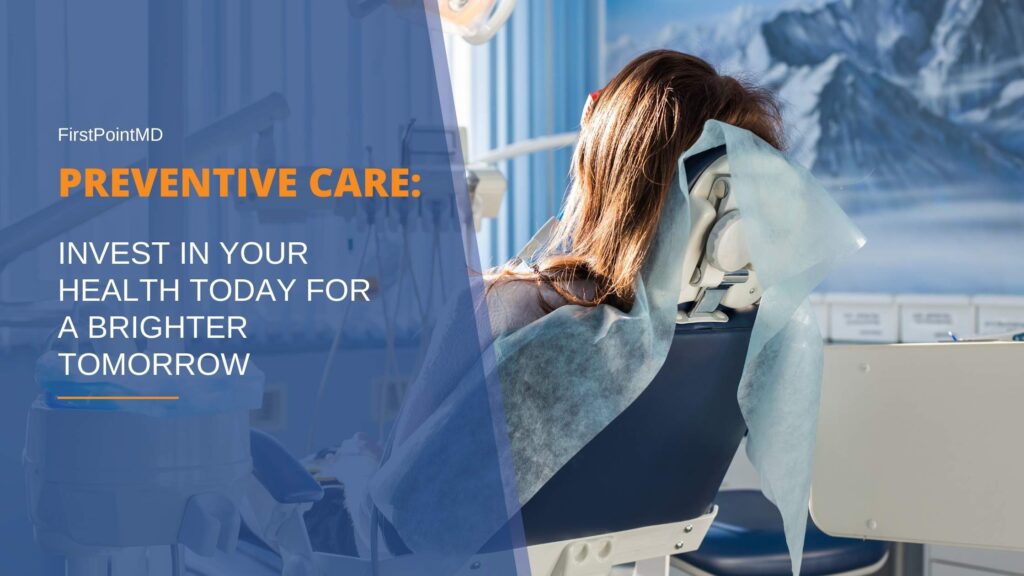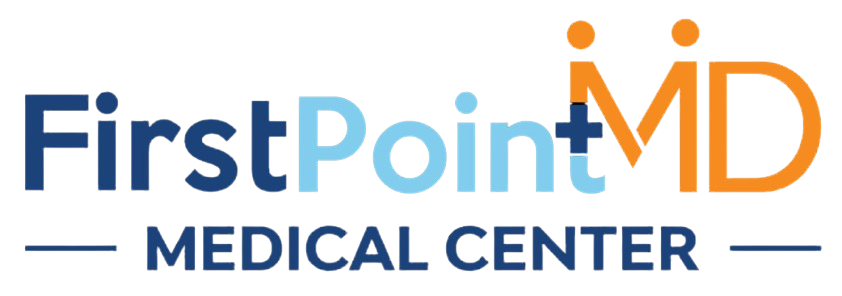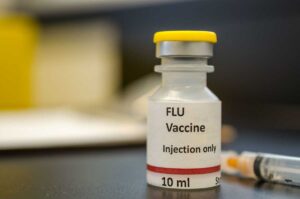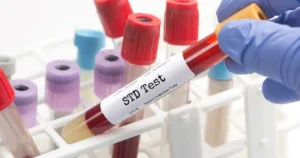Preventive Care: Invest in Your Health Today for a Brighter Tomorrow

Welcome to FirstPointMD in Long Island, NY! Today we’re going to explore the vital importance of preventive care and how investing in your health today can lead to a brighter tomorrow. Sickness is a common problem in the world, and in most cases, it is usually only addressed after it has occurred, preventive care serves as a savior that not only helps in the lifespan of human beings but also enhances their life.
What is Preventive Care?
At its core, preventive care encompasses all the steps you can take to maintain your health and catch potential issues early. It’s a proactive approach to healthcare that focuses on preventing diseases, injuries, and other health problems before they occur or worsen. This includes regular check-ups, screenings, immunizations, and lifestyle modifications.
Preventive care isn’t just about visiting your doctor when you’re sick; it’s about staying healthy year-round. You’ll work with healthcare professionals to identify risk factors, manage chronic conditions, and implement strategies to improve your overall well-being. This might involve discussing your family history, assessing your diet and exercise habits, or scheduling appropriate screenings based on your age and gender.
The Importance of Preventive Care
1. Early Detection
Early detection’s power lies in its ability to catch health issues before they become severe. By identifying potential problems in their early stages, you’re giving yourself the best chance at successful treatment and recovery. Regular check-ups, screenings, and tests are crucial components of early detection, allowing healthcare providers to spot warning signs that you might miss.
Don’t underestimate the importance of seemingly routine exams. Annual physicals, blood tests, and age-appropriate screenings can reveal hidden health concerns before symptoms appear. For instance, detecting high blood pressure early can prevent heart disease and stroke, while regular mammograms and colonoscopies can catch cancer in its most treatable stages.
Early detection isn’t just about major illnesses; it’s also vital for managing chronic conditions. Monitoring your cholesterol, blood sugar, and other key indicators helps you and your doctor stay ahead of potential complications. By taking a proactive approach to your health, you’re not only increasing your chances of a longer life but also improving your quality of life. Remember, catching health issues early often means simpler, less invasive treatments and better outcomes. Make early detection a priority in your preventive care routine.
2. Health Education
While early detection plays a key role in preventive care, understanding why it’s important is equally valuable. Health education empowers you to make informed decisions about your well-being. By learning about potential health risks and preventive measures, you’re better equipped to maintain a healthy lifestyle and avoid common ailments.
Health education covers a wide range of topics, including:
- Nutrition and dietary guidelines
- Exercise and physical activity recommendations
- Stress management techniques
- Proper hygiene practices
- Understanding family health history
Armed with this knowledge, you’re more likely to adopt healthy habits and recognize early warning signs of potential health issues. You’ll also be better prepared to communicate effectively with healthcare providers, ask relevant questions, and actively participate in your own care.
Moreover, health education extends beyond individual benefits. When communities are well-informed about health matters, they’re better equipped to support one another and make positive changes in their environment. This collective knowledge can lead to improved public health policies, reduced healthcare costs, and a healthier society overall. By investing in health education today, you’re not only safeguarding your own future but contributing to a brighter, healthier tomorrow for everyone.
3. Cost Savings
One of the most compelling reasons to embrace preventive care is the potential for significant cost savings in the long run. By investing in regular check-ups, screenings, and healthy lifestyle choices, you’re effectively reducing your risk of developing costly chronic conditions. Prevention is far less expensive than treatment, and early detection can save you from hefty medical bills down the road.
Consider the financial burden of managing diseases like diabetes, heart disease, or cancer. These conditions often require ongoing treatments, medications, and hospitalizations, which can quickly drain your savings. In contrast, preventive measures like vaccinations, health screenings, and wellness programs are typically covered by insurance with little to no out-of-pocket costs.
Moreover, preventive care can help you avoid lost wages due to illness-related absences from work. By maintaining good health, you’re more likely to remain productive and financially stable. Additionally, many employers offer incentives for participating in wellness programs, further boosting your potential savings.
Ultimately, investing in preventive care is an investment in your financial future. By prioritizing your health today, you’re not only improving your quality of life but also safeguarding your financial well-being for years to come.
4. Enhanced Quality of Life
Preventive care isn’t just about avoiding illness; it’s about embracing a life of vitality and well-being. By taking proactive steps to maintain your health, you’re investing in a future filled with energy, productivity, and joy.
Regular check-ups, screenings, and lifestyle modifications can significantly enhance your quality of life, allowing you to:
- Maintain physical fitness and mobility
- Boost mental clarity and cognitive function
- Reduce stress and improve emotional well-being
- Enjoy better sleep patterns
- Increase overall life satisfaction
When you prioritize preventive care, you’re not just adding years to your life; you’re adding life to your years. By addressing potential health issues before they become serious, you’ll spend less time dealing with chronic conditions and more time doing what you love.
This holistic approach to health empowers you to take control of your well-being, leading to increased confidence and a more positive outlook on life. Evidence shows that individuals who engage in regular preventive care report higher levels of happiness and life satisfaction.
Key Components of Preventive Care
Preventive care encompasses several key components that work together to safeguard your health. You’ll find that regular check-ups, screenings, vaccinations, and healthy lifestyle choices form the foundation of a comprehensive preventive care strategy.
1. Regular Check-Ups:
At the heart of preventive care lies the cornerstone of regular check-ups. These routine visits to your healthcare provider are essential for maintaining optimal health and catching potential issues before they become serious problems. By scheduling and attending regular check-ups, you’re taking a proactive approach to your well-being.
During these appointments, your healthcare professional will:
- Assess your overall health status
- Screen for potential health risks
- Update your immunizations
- Provide personalized health advice
- Discuss any concerns you may have
Regular check-ups allow for early detection of diseases, which often leads to more effective treatment outcomes. They’re also an opportunity to establish a rapport with your healthcare provider, ensuring you receive consistent, personalized care tailored to your unique needs.
Don’t wait until you’re sick to see a doctor. By prioritizing regular check-ups, you’re investing in your long-term health. These visits help you stay informed about your body’s changing needs and empower you to make informed decisions about your lifestyle and health choices. Remember, prevention is always better than cure, and regular check-ups are your first line of defense against potential health issues.
2. Screenings:
Along with regular check-ups, screenings form a crucial part of preventive care. These tests are designed to detect potential health issues before they become serious problems. By identifying risks early, you’re empowered to take action and prevent the onset of diseases.
Common screenings include blood pressure checks, cholesterol tests, and blood glucose measurements. These simple tests can reveal your risk for heart disease, stroke, and diabetes. For women, mammograms and Pap smears are essential for detecting breast and cervical cancer early. Men should consider prostate cancer screenings, especially as they age.
Colorectal cancer screenings, such as colonoscopies, are recommended for both men and women over 50. Bone density scans can help detect osteoporosis, while skin cancer screenings can catch melanoma in its early stages.
Your healthcare provider will recommend appropriate screenings based on your age, gender, family history, and lifestyle factors. It’s crucial to follow through with these recommendations. Remember, many serious health conditions are treatable when caught early. By prioritizing screenings, you’re taking a proactive approach to your health, potentially saving your life and improving your overall quality of life.
3. Vaccinations:
Regularly updating your vaccinations is a cornerstone of effective preventive care. Vaccines stimulate your immune system to produce antibodies, protecting you from potentially life-threatening diseases. By staying current with recommended immunizations, you’re not only safeguarding your own health but also contributing to community immunity, which helps protect vulnerable populations.
At FirstPointMD, we emphasize the importance of maintaining an up-to-date vaccination schedule. Here are key reasons why vaccinations are crucial:
- Prevent serious illnesses and complications
- Reduce the spread of infectious diseases
- Save time and money on potential medical treatments
- Protect future generations by breaking disease transmission chains
- Support global efforts to eradicate certain diseases
Don’t underestimate the power of vaccines in your preventive care routine. They’re safe, effective, and backed by extensive scientific research. Consult with your healthcare provider to ensure you’re current on all recommended vaccinations for your age, health status, and lifestyle. Remember, investing in vaccinations today can significantly impact your health outcomes tomorrow, allowing you to lead a healthier, more productive life while contributing to a stronger, more resilient community.
4. Healthy Lifestyle Choices:
While vaccinations play a vital role in preventive care, your daily choices significantly impact your overall health and well-being. Adopting a healthy lifestyle is a cornerstone of preventive care, empowering you to take control of your health and reduce the risk of chronic diseases.
Start by focusing on nutrition. Consume a balanced diet rich in fruits, vegetables, whole grains, and lean proteins. Limit processed foods, saturated fats, and added sugars. Stay hydrated by drinking plenty of water throughout the day.
Regular physical activity is crucial. Aim for at least 150 minutes of moderate-intensity exercise or 75 minutes of vigorous-intensity exercise per week. Incorporate strength training exercises to maintain muscle mass and bone density.
Don’t underestimate the importance of sleep. Strive for 7-9 hours of quality sleep each night to support your immune system and overall health.
Manage stress through techniques like meditation, deep breathing, or yoga. Chronic stress can negatively impact your physical and mental well-being.
Avoid harmful habits such as smoking and excessive alcohol consumption. If you need help quitting, consult your healthcare provider for support and resources.
Taking Action Today for a Brighter Tomorrow
Proactivity is the key to a healthier future. By taking action today, you’re investing in a brighter tomorrow. Start by scheduling regular check-ups with your healthcare provider and following through with recommended screenings. Don’t wait for symptoms to appear; catch potential issues early when they’re most treatable.
Embrace these preventive care strategies:
- Maintain a balanced diet rich in fruits, vegetables, and whole grains
- Engage in regular physical activity, aiming for at least 150 minutes per week
- Prioritize quality sleep, targeting 7-9 hours nightly
- Manage stress through mindfulness, meditation, or yoga
- Stay up-to-date on vaccinations and immunizations
Conclusion
You’ve learned that preventive care is an essential investment in your health. By taking proactive steps today, you’re setting yourself up for a healthier future. Remember, it’s not just about avoiding illness; it’s about optimizing your well-being. Embrace regular check-ups, screenings, and healthy lifestyle choices. Stay informed, listen to your body, and work closely with your healthcare providers. Your future self will thank you for the commitment you’re making to your health now.






